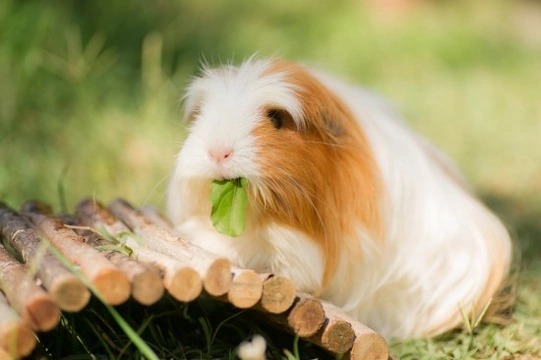
What to feed your guinea pig: Essential diet guide
If you are planning to adopt a guinea pig, or already have one, understanding their dietary needs is important for keeping them happy and healthy. This guide provides a clear overview of safe foods, dietary essentials like hay and pellets, and the vital role of vitamin C in their diet.
Feeding your guinea pig: Safe fruits and vegetables
Fresh fruits and vegetables are an important part of a guinea pig's diet, providing necessary nutrients and variety. However, not all produce is suitable, so it’s essential to know which are safe and which to avoid.
Guinea pigs generally enjoy:
- Guinea pig favorites such as apples (seeds removed and sliced), oranges (in segments), and grapes (any colour).
- Carrots, including the tops, offer goodness and crunch.
- Leafy greens like spinach and romaine lettuce in moderation to prevent digestive upset.
- Broccoli, bell peppers (yellow, green, red), cherry tomatoes, and parsley add variety and vitamin C.
- Bananas cut into small pieces as occasional treats due to their sugar content.
Always provide fresh, clean produce, washing well to remove pesticides. Avoid giving your guinea pig any questionable or untested foods to prevent health risks.
Foods to avoid giving your guinea pig
Some foods can cause anything from mild stomach upset to serious health problems in guinea pigs. Responsible pet ownership means avoiding these entirely:
- Spicy foods, such as chillies and seasonings.
- Pet food designed for other species like hamsters or rats.
- Human sweets and treats high in sugar – cakes, doughnuts, chocolate included.
- Caffeine-containing products and dairy items, including cheese, which can upset their stomach.
- Meat and animal products - guinea pigs are herbivores.
- Iceberg lettuce, cabbage, and cauliflower, which can cause diarrhoea or gas.
If you notice your guinea pig showing any signs of illness or dietary distress, consult a qualified vet promptly.
The importance of hay in your guinea pig’s diet
Hay forms the foundation of a healthy guinea pig diet. It is essential for their digestive health and dental care. Guinea pigs have a unique double digestion system that relies heavily on high fibre intake.
Provide an unlimited supply of fresh hay such as timothy or meadow hay. Guinea pigs will nibble throughout the day, helping to keep their gut functioning well and their teeth worn down naturally.
Hay is inexpensive and easy to source from reputable pet stores, and you cannot offer too much. Ensuring it is fresh and free from dust promotes good respiratory and digestive health.
Why you should include guinea pig pellets
Pellets complement the diet by providing balanced nutrition with added vitamins and minerals, especially vitamin C, which guinea pigs cannot synthesise themselves.
Use commercial guinea pig pellets formulated to meet their special needs. Offer no more than a handful daily for adult guinea pigs to avoid overweight issues.
Always choose pellets that contain stabilised vitamin C and avoid those with added seeds, nuts or coloured bits, which can be harmful.
Vitamin C: A crucial nutrient for guinea pigs
Since guinea pigs cannot produce vitamin C on their own, it must be supplied via their diet. Lack of vitamin C can lead to serious conditions like scurvy, causing symptoms such as:
- Weakness and lethargy
- Excessive bleeding from small wounds
- Rough, unkempt coat
- Painful, swollen joints
Provide fresh fruits and vegetables rich in vitamin C, such as bell peppers and leafy greens, along with fortified pellets. If you have concerns about your guinea pig’s health, always seek advice from a qualified vet.
Summary and responsible feeding tips
- Offer unlimited fresh hay as the dietary staple to support digestion and dental health.
- Supplement daily with a measured handful of quality pellets fortified with stabilised vitamin C.
- Provide a variety of fresh, washed fruits and vegetables rich in vitamin C, while avoiding toxic or problematic foods.
- Always monitor your guinea pig's appetite and health, adjusting diet and consulting vets as needed.
- Practice ethical pet ownership by choosing safe, fresh foods and providing a balanced diet.
Feeding your guinea pig well is simple with the right knowledge. By focusing on hay, safe vegetables, appropriate pellets, and vitamin C, you can keep your little companion thriving with vitality and happiness.
For more information on finding healthy guinea pig feeders and responsible pet care, visit reputable sources or consult a veterinary professional.



